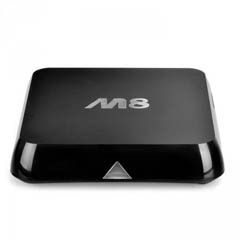 From a niche hobbyist affair under its former name XBMC, Kodi is now grabbing international headlines on a daily basis. The media player is both benign and entirely legal in standard form, but boost it with special addons and it becomes a piracy powerhouse.
From a niche hobbyist affair under its former name XBMC, Kodi is now grabbing international headlines on a daily basis. The media player is both benign and entirely legal in standard form, but boost it with special addons and it becomes a piracy powerhouse.
One of the main problems for the content industries arises from the software’s ability to run on cheap Android and similar hardware. Whether that’s a phone, tablet, set-top box or a device such as Amazon’s Fire Stick, these setups are now in millions of homes, delivering free content to the masses.
Authorities everywhere are now scrambling to deal with the problem and Canada is one of the areas where content producers and cable providers have resorted to legal action. Last year, Rogers Communications, Bell, Videotron and others targeted several retailers who supplied so-called “fully loaded” Android and Apple set-top boxes to the public.
The original defendants, including ITVBOX.NET, My Electronics, Android Bros Inc., WatchNSaveNow Inc and MTLFreeTV, all sold devices that came pre-configured to receive content that customers would otherwise have had to pay for.
Inquiries into the sales began in April 2015 and in the months that followed test purchases were made. The plaintiffs found that the devices not only provided access to their content for free but that the sellers advertised their products as a way to avoid paying bills.
In response, the TV and content companies went to the Federal Court with claims under the Copyright Act and Radiocommunication Act. Last June they were successful in obtaining an interlocutory injunction to stop the devices being made available for sale.
“The devices marketed, sold and programmed by the Defendants enable consumers to obtain unauthorized access to content for which the Plaintiffs own the copyright,” Judge Daniele Tremblay-Lamer wrote in her order.
“For the time being, I am satisfied that the Plaintiffs have established a strong prima facie case of copyright infringement and that an injunction would prevent irreparable harm without unduly inconveniencing the Defendants.”
While the majority of the defendants in the case have been silent (the list has now grown to more than 50 sellers), WatchNSaveNow and MTLFreeTV took the decision to appeal the injunction, arguing that it was never established in court that sales of the devices would hurt the plaintiffs’ business in advance of a trial.
According to CBC, that argument failed to convince the Appeal Court, which yesterday upheld the Federal Court’s decision to hand down an injunction. Turning the box-sellers’ marketing material against them, the Court noted that they’d advertised their devices as providing a way to access free content and avoid paying cable bills.
One of the sellers to appeal, Vincent Wesley of MTLFreeTV, was the only box-seller to turn up at the original Federal Court hearing last year. Back then he said he had nothing to do with the development or maintenance of the software installed on the devices he sold. That didn’t appear to help back then and now the Appeal Court has failed to see the case in the defendants’ favor.
“I’m actually very disappointed. We weren’t even given a fair shot,” Wesley said.
Unsurprisingly, the plaintiffs were rather pleased with the outcome, with both Bell and Rogers welcoming the decision to uphold the injunction.
“Today’s swift dismissal of the appeal of the Federal Court’s injunction speaks to what this case is all about — an obvious case of piracy,” Rogers spokesperson Sarah Schmidt told CBC.
A Bell spokesperson said the decision provided more confirmation that the devices are illegal and that those that sell them face “significant consequences.”
For Wesley, those consequences are already being felt in the shape of a $5,000 court costs bill, something which he says has left him “at the end of his finances.”
With no money left to fight, any trial will almost certainly go the way of the cable and TV companies. Certainly, the public hasn’t signaled any intention to come to the sellers’ rescue. A GoFundMe campaign set up by Wesley in June last year has seen just 10 people deposit $350 of a $30,000 target.
The legal assaults on Kodi, Showbox, and Popcorn-Time enabled devices seems set to continue for some time but one has to wonder what effect the endless flood of news articles is having in respect of the promotion of free content available through the platforms. Legal action is perhaps inevitable but every case only serves to raise the profile of this new piracy phenomenon.





